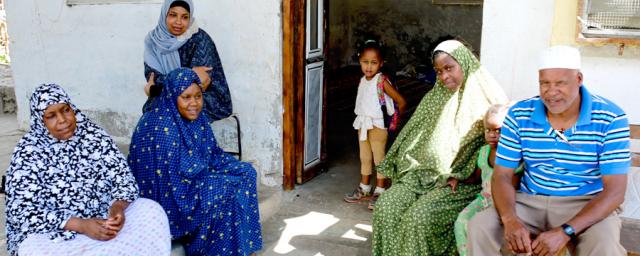
Palestinians in Gaza remember a time when almost everyone could drink clean water from the tap.
Now less than four percent of fresh water is drinkable and the surrounding sea is polluted by sewage. Yet the international community is failing to do enough to protect the health and dignity of almost 2 million people who have nowhere else to go.
Families without access to water and sanitation facilities face health problems
 Millions of liters of sewage are discharged into the coast off Gaza every day. Photo: Oxfam
Millions of liters of sewage are discharged into the coast off Gaza every day. Photo: Oxfam
“Our water is salty as if you are drinking from the sea,” says 50-year old Um Amir, a mother of 11 whose home accommodates an extended family of 20.
Her home is not connected to a sewage system so the family relies on open, uncovered pits to collect sewage, which they empty themselves. Too often their children have skin issues and suffer from diarrhea.
The Amirs’ story is not unique. Gaza’s water and sanitation crisis is escalating dangerously, with clean water increasingly scarce and almost a third of households not connected to a sanitation system.
Last week’s shutdown of Gaza’s only functioning power plant creates even more urgency, with the water utility warning that it does not have the fuel to run water and sanitation facilities when the power is off.
Water pollution is among the factors causing a dramatic increase in kidney problems in the Gaza Strip, Dr. Abdallah al-Kishawi told the AP recently, with a 13-14 percent increase every year in the number of patients admitted with kidney problems to Gaza City’s Shifa Hospital.
Less than 16% of items needed to construct vital water infrastructure are reaching Gaza
Israel’s blockade of Gaza severely limits materials from entering, making it incredibly difficult to develop water and sanitation infrastructure to meet the needs of a growing population.
A project which could see the Amir family and other homes nearby connected to a sanitation system has been delayed due to essential equipment, such as water pipes and pumps, being until recently blocked from entering Gaza. Every day of delay leaves families vulnerable to illness, as well as risking further pollution from sewage seeping into the groundwater, jeopardizing the health of many more.
Israel has security concerns, including indiscriminate rocket fire from Gaza by armed groups. But even if it were deemed necessary to restrict materials on the basis of these concerns, Israel is prohibited under international law from disregarding the humanitarian requirements of Palestinians when doing so. Security concerns cannot be used as a justification for violating the rights of civilians living under occupation.
In the wake of the devastation in Gaza in 2014, the UN brokered an agreement – the Gaza Reconstruction Mechanism (GRM) - between the Palestinian Authority and the Government of Israel, so construction materials could enter Gaza more easily. This has helped repair most of the water and sanitation infrastructure that was damaged almost three years ago.
However, Gaza’s chronic water crisis predates the war and requires a massive injection of funds and equipment to provide clean water and toilets. Almost 3,000 items needed to build infrastructure to meet the demand for water and sanitation are still waiting for approval to enter through the mechanism, which requires Israeli approval of projects as well as individual items. Recent research by Oxfam found that just 16% of items submitted for approval through the GRM for the water sector have actually made it into Gaza, a damning success rate that mirrors the dynamics of the blockade itself.
Lack of funding and limited coordination have fatal consequences for families in Gaza: the international community must act
 Al Muntar reservoir, the main water storage capacity for Gaza city. Photo: Oxfam
Al Muntar reservoir, the main water storage capacity for Gaza city. Photo: Oxfam
Confronted with Israeli-imposed restrictions, even major donors are failing to facilitate the necessary equipment at the scale or speed needed to repair and develop Gaza’s deficient infrastructure. The result for Gaza is polluted water, a dangerous lack of sanitation and little hope on the horizon for better conditions.
This is a public health ticking time bomb and a complex one. Lack of funding and limited coordination between the Palestinian Authority and the de-facto authorities in Gaza also play an enormous role and it is critical that both parties prioritize reconciliation. However, Oxfam research found that the requirement for Israeli approval of projects and ‘dual use’ items, whether via the GRM or otherwise, is most commonly cited as the primary cause for delays in tackling the water crisis.
The international community, including governments such as the UK, Germany and the Netherlands who fund the mechanism, must ensure that the security concerns of Israel do not violate the rights of civilians under occupation and therefore must immediately increase efforts to pressure Israel to allow the entry of materials. There must be a coordinated response to the Government of Israel if progress is not made in ending unlawful Israeli-imposed restrictions.
Without urgent and fundamental change, the crisis will spiral out of control, construction will stagnate and the UN’s prediction that Gaza will be unliveable by 2020 will be a reality.